Like humans, many senior dogs struggle with weight.

Dog lovers and vets encourage optimum weight in pets for longevity, and most dog lovers choose low-calorie dog meals when their elderly and aging dogs gain weight. However, dog lovers and vets also know that weight loss isn’t always healthy since as each elderly dog ages they need different items to support its needs.
If your senior dog is losing weight it may affect their longevity just as an overweight dog is affected by too much weight gain.
Aging dogs, like people, lose muscular mass; therefore, a little drop in body mass is typical. Determining if your dog’s weight loss is average for an older senior dog or a sign of illness is difficult. Like so many challenges with managing healthcare with a senior dog, weight management should be added to the list along with spoiling your senior dog with massages and other special senior dog essentials!
We’ll discuss the reasons that your senior dog is losing weight and the signs that should necessitate a visit to your vet.
Why Optimum Weight Matters For Your Senior Dog?
Although many articles focus on keeping your dog from being obese, which is incredibly important to reduce the risk of disease and is critical for longevity an underweight dog deserves attention as well.
If your dog is losing weight your aging dog can be sluggish, and undernourished, and are potentially at risk for more health issues if their bodies don’t get enough nutrients. An underweight dog may also lose muscle mass more rapidly which is detrimental for aging senior dogs to support bones and ligaments and stay mobile.
Weight maintenance whether to fight obesity or protect your dog from being undernourished are both important.
What is a Healthy Weight for Your Senior Dog?
Determining a healthy weight for your dog may confuse you. With so many different breeds, ages, activity levels what really should be an ideal weight for your dog?
Here is a handy healthy weight chart for senior dogs from the American Vet Association that should help you make that determination so that your dog can prosper at the correct weight.
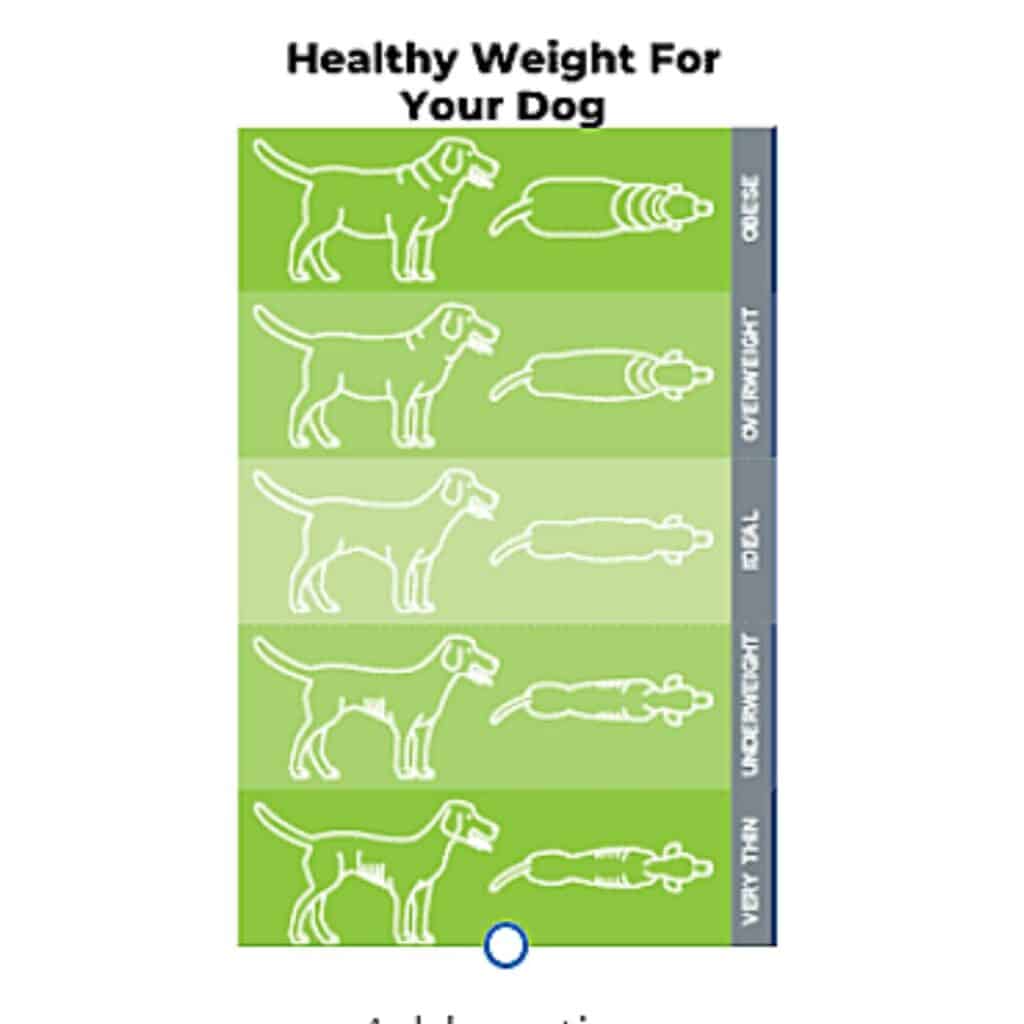
Common Reasons Why Your Senior Dog Is Losing Weight
A senior dog’s weight loss might be due to several issues. There may be more symptoms, depending on the underlying condition, that you and your veterinarian may use to determine the cause of the problem and begin treatment.
Below are some of the most frequent reasons your senior dog is losing weight.
Dog Dental Issues
Many Senior dogs are impacted by dental problems as we discuss in our Guide to Senior Dog Tooth Care. A senior dog will lose weight if they have difficulty eating due to tooth discomfort. Excessive drooling, bad breath, and discolored or inflamed gums are all common symptoms of dog dental issues.
Dental issues are perhaps the most prevalent cause of weight loss in senior dogs. About 80% of dogs have some dental problem by the time they’re three years old, and these problems only increase with age.
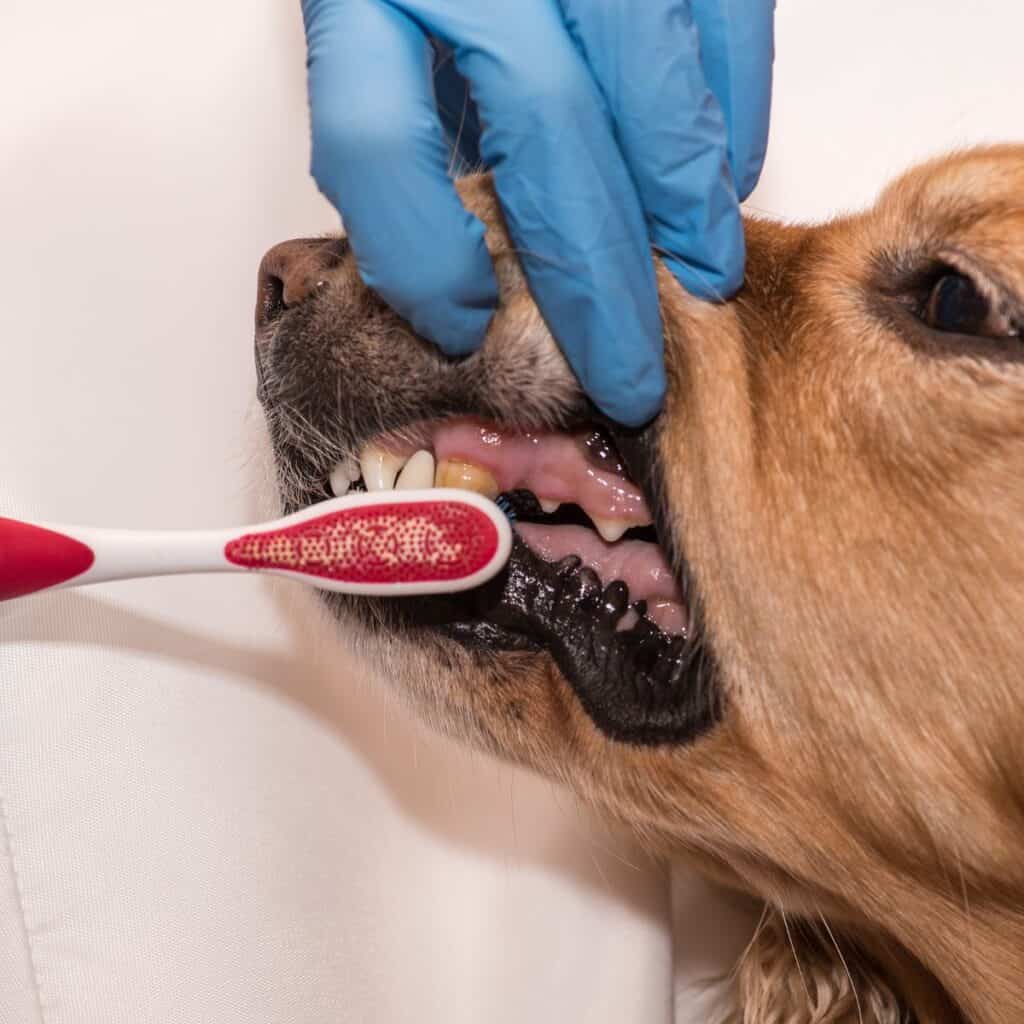
For treatment, you’ll need to take your senior to the vet, who may elect to do a dental to remove any affected teeth. They could also recommend a change in their oral hygiene strategy.
Starting early with dental care is critical and may not be as difficult as you think as we discuss in our Article Do Dog Bones Help My Dog’s Teeth?
If your dog has dental problems, you may find that switching them to wet food makes mealtimes more comfortable because less chewing is required.
See other articles you may be interested in:
Three Types of Chronic Pain Your Dog May Be Hiding
Choosing the Best Food for Senior Dogs
Dog Dehydration
As they age, dogs often drink less water, (unless they have kidney issues or diabetes which may cause an increase in water consumption) which might lead to slight weight loss. However, elderly dogs may have a natural inclination to drink less than younger dogs, which can be detrimental to their well-being.
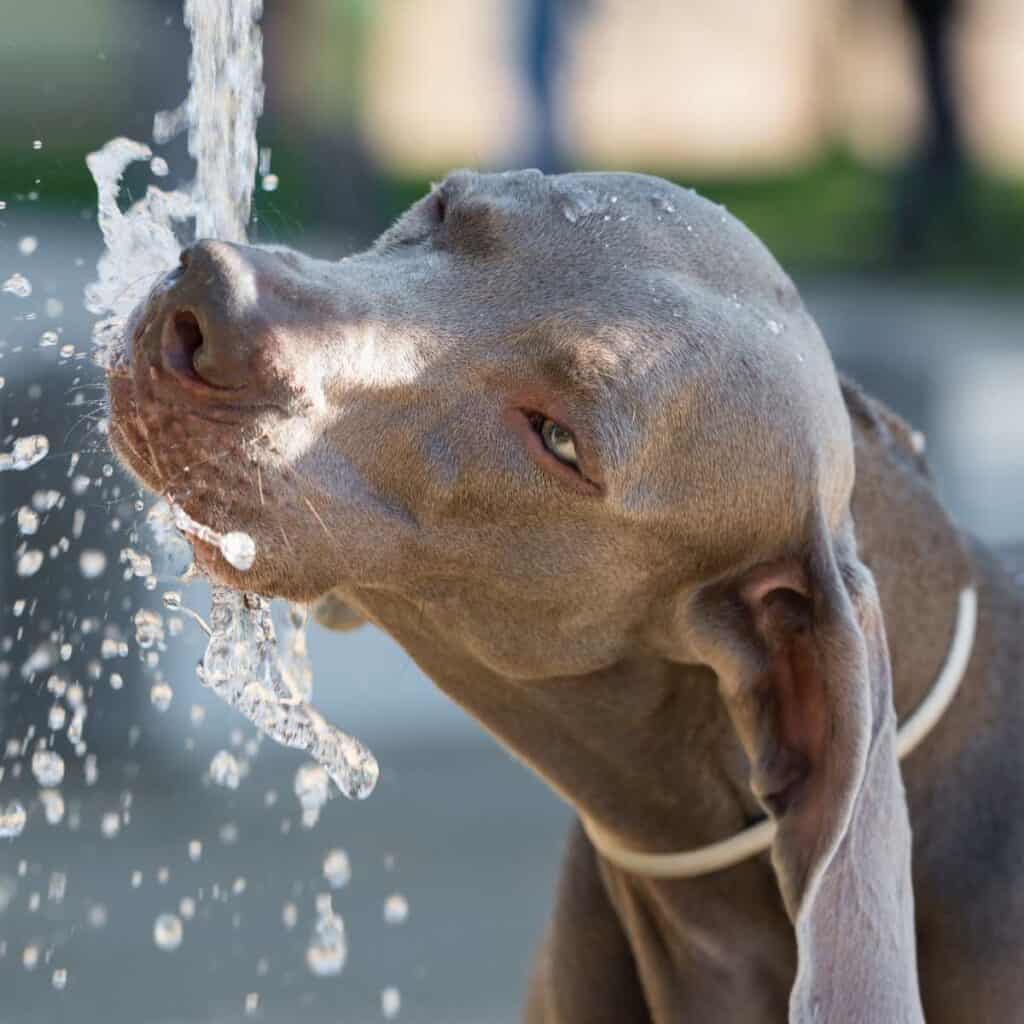
The most typical symptoms include decreased urination frequency, darker-than-usual urine, unusually high levels of fatigue, and rubbery gums.
Strategies to increase water consumption are a circulating water system, flavored dog water, or change the water daily. Eating dry dog foods also increase the dog’s need for fresh, clean water.
Several medical disorders can manifest themselves with dehydration, so it’s best to have your pet checked out by a veterinarian if it happens.
See other articles you may be interested in:
Keep Your Dog Hydrated: How to Make Flavored Water for Pets
Everything Dogs and Water: How Long Can My Dog Go Without Water?
Canine Cognitive Dysfunction, Depressive Symptoms, And Anxiety
Dogs suffering from emotional illnesses such as anxiety, depression, or canine cognitive dysfunction may not eat as much as they typically would. This is similar to the behavior that is seen in people who are suffering from these conditions.
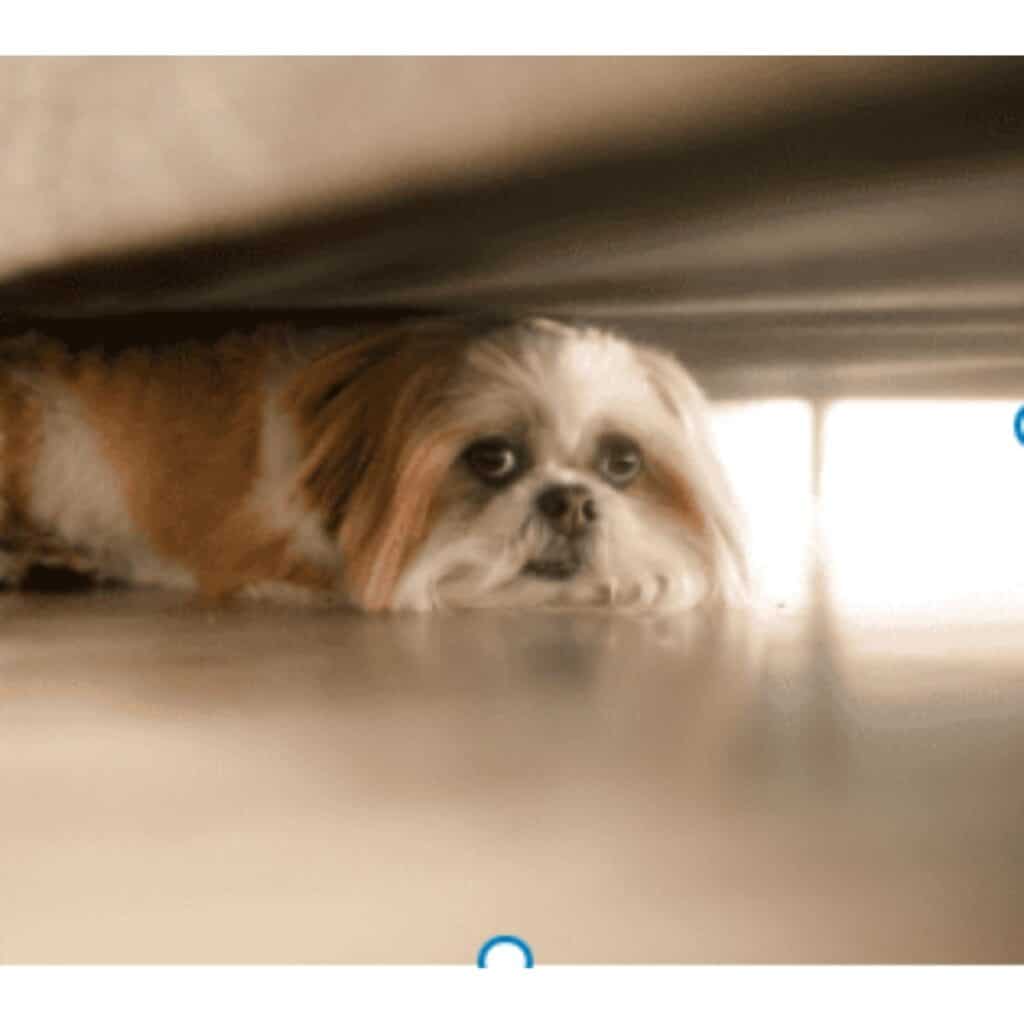
Cognitive canine dysfunction is incredibly prevalent in senior dogs and may cause dogs to forget to eat and increase anxiety which can reduce appetite.
Check out our Ultimate Guide to Dog Dementia with a Free Printable Checklist to Track the Signs.
Kidney Disease
Your dog may have weight loss in addition to its other symptoms if they are suffering from kidney disease, a widespread condition that affects senior dogs.
Talk to your dog’s veterinarian about having a kidney function test performed on your pet and moving to a dog food developed specifically for renal disease. This food will have special ingredients that will help keep your dog healthy.
According to PetMD Signs of Kidney Kidney Disease in Dogs Include:
- Drinking more or less water.
- Change in volume and frequency of urination.
- Loss of interest in playing or interacting.
- Decreased appetite.
- Vomiting or diarrhea.
- Unexplained weight loss.
- Blood in urine.
- Signs of dental disease like pale gums, smelly breath, mouth ulcers.
If you see signs of kidney disease consult your vet before weight loss occurs.
You may be interested in:
Senior Dog Diet: Choose the Best Diet for Your Senior Dog
Dog Heart or Liver Disease
Older dogs often experience heart problems, which are typically treatable with medication. Keep a close eye on your dog’s behavior as he matures, as heart disease is typically accompanied by symptoms such as a persistent cough, listlessness, and excessive drowsiness and other symptoms that can lead to weight loss.
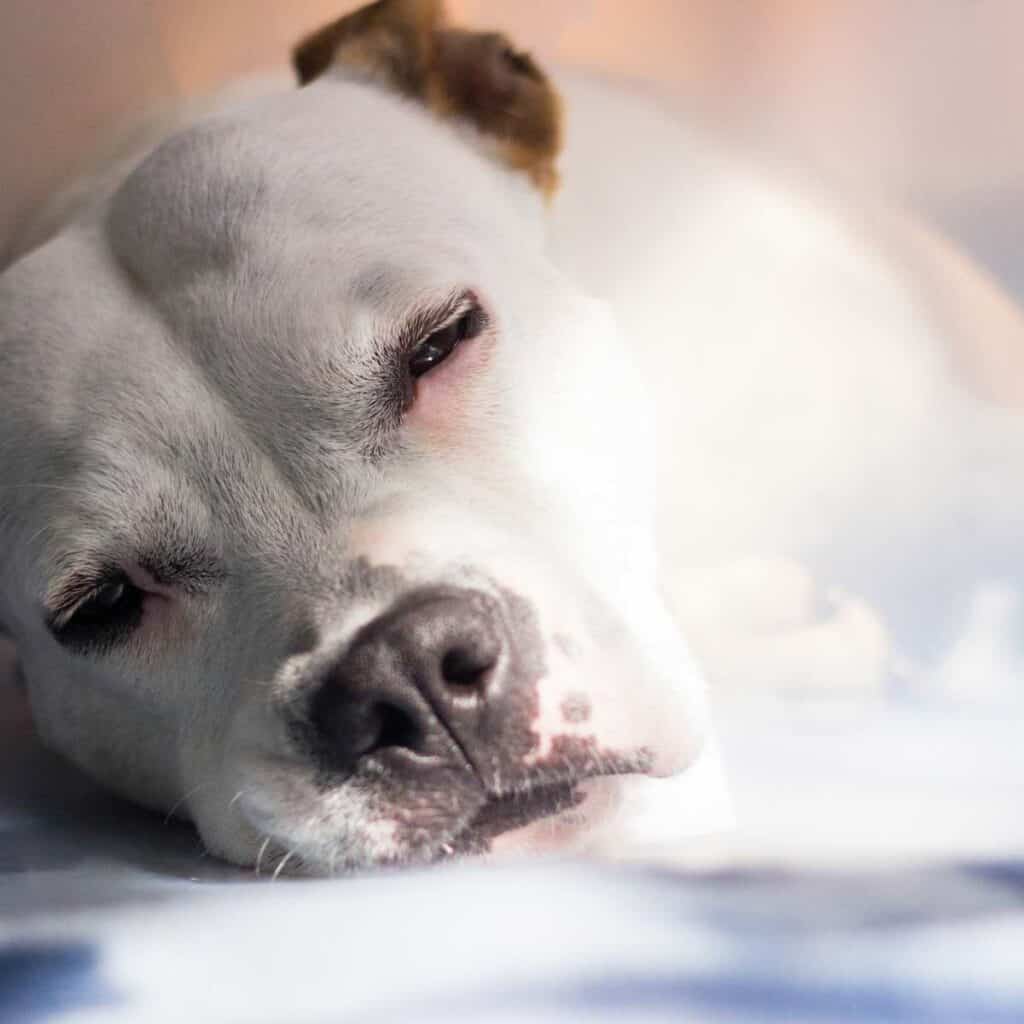
Similarly, Abrupt weight loss is a symptom of liver (and, to a lesser degree, gall bladder) illness. Keep a look out for jaundice, characterized by yellowing of the eyes or skin, and is another symptom usually linked with liver illness.
You may be interested in 5 Things Your Senior Dog Wishes They Could Tell You
Dog Diabetes
Dogs with diabetes can’t use glucose properly; therefore, they can’t run on it as a younger dog would. Instead, your dog must rely on stored protein and fat for fuel.
This may result in an overall reduction in your dog’s weight. Most dogs with diabetes require a diet designed to fulfill the nutritional requirements of the disease and may have to be put on diabetes medicine treatment.
Dog Parasites
All dogs are subject to parasites which can occur due to transmission from fleas, eating raw meat and their environment. Parasites can cause everything from weight loss to ulcers. The most common parasites in dogs are hook and round worms which are not visible to the eye and require a stook sample. Your vet or you can take a stool sample to confirm whether or not parasites are an issue (or rule parasites out) and provide deworming medicine.
Most dogs are simply on a deworming regimen to prevent and rid them of parasites on a consistent basis and there are natural ways to maintain a parasite pet as well that you can consider. Ultimately, parasites should be a primary consideration for overall dog health and keeping your family safe and when finding the cause if weight loss.
Final Thoughts
Unfortunately, your elderly dog can’t tell you when he’s in distress but weight loss is one symptom that can be as they say a “canary in the coal mine” as it could be indicative of another health issue that may be impacting your senior dog.
A senior dog losing weight may help an astute pet lover understand other issues that may be affecting a dog’s health that may be treatable.
See a vet as soon as possible so they can start formulating a treatment strategy for a senior dog that is losing weight. Tending to treatable issues may help your elderly companion be comfortable and have an improved quality of life.
Looking to learn more about taking charge of your Dog’s Health? Learn about Pet Testing from The Popular Pets. Now offering pet testing for your the health of your pet and your peace of mind. Learn more about pet testing options.
You may also be interested in the Ultimate Guide to Heartworm
Diatomaceous Earth for Dogs and Cats FAQ
Diatomaceous earth is great for dogs and is safe to ingest and put on their skin, sniffing diatomaceous earth is not a problem but dog owners do need to be careful that dogs do not inhale DE further. The silica in DE can be harmful to dog and cat lungs, especially pets with respiratory issues. The many benefits of DE make it a useful pet wellness tool.
Since DE is an excellent addition to food due to its ability to kill parasites, bind collagen and support a healthy coat and joints, licking DE is not only beneficial but suggested. DE is safe for dogs but dog lovers should get food grade DE to be safe.
Diatomaceous earth will not harm dogs. DE is non-toxic and actually helpful for dogs due to its many wellness attributes. Pet lovers have found many benefits to adding DE to their pet’s food to help support a healthy coat and fend off parasites and on externally to help with fleas and ticks.
Senior Dog Weight Loss FAQs
Not necessarily, senior dogs and senior people lose muscle mass and it may appear like it is weight. Some senior dogs gain weight due to less activity. If your senior is losing weight your should heck for a health issue especially if it is dramatic weight loss.
Due to a loss of muscle mass as dogs age more protein will be helpful. However, as dogs move into the senior years (the last 1/3 of their life) they may encounter other health issues associated with kidneys which requires a diet to address so it is hard to generalize about nutritional needs of senior dogs which is why there is no standard for senior dog food.
Most dogs should be fed twice a day, however, if your puppy or senior dog is underweight you can add another lunchtime feeding. Senior dogs lose muscle mass which may seem like they are thin but see our guide about to learn more about healthy weights.
Whatever food meets the nutritional needs of your dog will be the best. Many senior dogs have teeth issues so dry food may be difficult for senior dogs to chew causing them to not eat as much as they should and to lose weight so it is best to consider all health needs of senior dogs when choosing a dog food.

